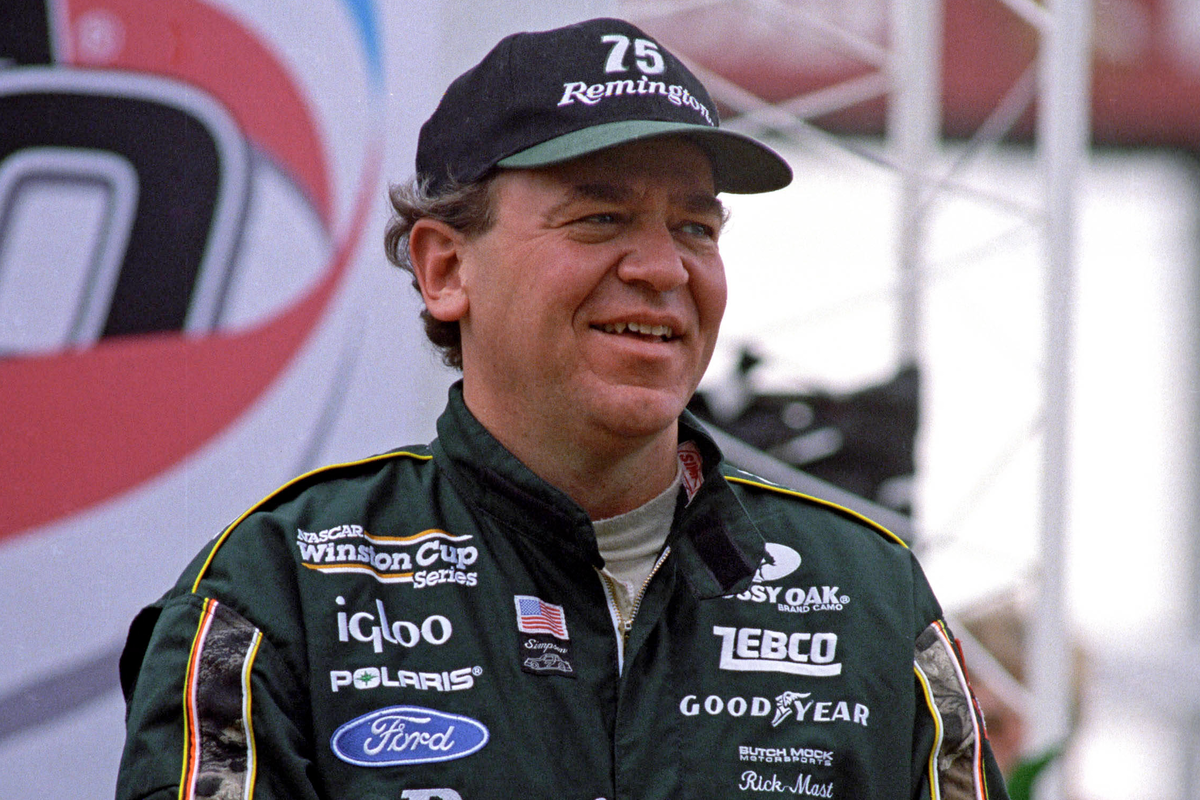

In recent years, NASCAR’s playoff format has increasingly dominated the Cup Series conversation, often putting race results and championship hype ahead of the sport’s human stories. But behind the headlines and numbers, one veteran voice is calling attention to something deeper, the emotional connection between drivers and fans.
Watch What’s Trending Now!
Rick Mast, a former Cup Series driver turned commentator, recently weighed in on this topic with refreshing honesty. Using Denny Hamlin’s current wave of attention as an example, Mast reminded fans and media alike that NASCAR’s heartbeat lies not in its playoff points but in the personalities that bring it to life.
Mast’s take and the Denny Hamlin effect
Rick Mast isn’t just another retired driver sharing an opinion; he’s someone who’s lived and breathed NASCAR through its gritty eras and transition to modern-day spectacle. Starting his Cup career in 1988, Mast competed in 364 races over 15 seasons, earning a reputation for determination and resilience. Although he never captured a Cup win, his consistency spoke volumes; he was often the underdog punching above his weight.
From capturing the pole in NASCAR’s inaugural Brickyard 400 in 1994 to finishing a proud sixth in the 1989 Daytona 500 despite lacking sponsorship, Mast became a symbol of heart over horsepower. When he retired in 2002 due to carbon monoxide health concerns, Mast didn’t walk away bitterly. Instead, he carried forward his love for the sport as a keen observer and respected voice in the racing community. Now 68, with all that experience, he speaks candidly about what NASCAR risks losing in the modern era: its emotional soul.
In a recent post that drew attention across social media, Mast questioned the sport’s overemphasis on the playoff format, urging NASCAR to refocus on drivers’ individuality and charisma. He tweeted:
“The playoffs dominated most of the media attention during the season. This is attention that needs to be directed towards the drivers. We’ve GOT to invest in the drivers personalities. These guys have to become bigger than life. Just look at the emotions that @dennyhamlin stirred up the last few days. This will fix most of the problems.”
The playoffs dominated most of the media attention during the season. This is attention that needs to be directed towards the drivers. We’ve GOT to invest in the drivers personalities. These guys have to become bigger than life. Just look at the emotions that @dennyhamlin stirred…
— Rick Mast (@rickmast22) November 5, 2025
Denny Hamlin, a polarizing figure known for his confidence and willingness to speak his mind, has become the lightning rod for both admiration and criticism, which, as Mast points out, is exactly what the sport needs. Whether fans love or hate him, they’re talking about him, reacting to him, and connecting to the story he’s telling every week. To Mast, that’s what creates passion and loyalty, emotions that the playoff structure alone can’t generate.
Many inside the garage echo his thoughts. They feel the playoff system, while intended to create excitement, sometimes turns drivers into mere mathematical contenders rather than relatable personalities. By centering the sport on emotional storytelling like Hamlin’s fiery rivalries, celebrations, and frustrations, NASCAR can reignite the human bond that once defined it.
Understanding what fans truly want
The discussion sparked by Rick Mast ties directly into ongoing conversations Denny Hamlin himself has been driving. Over the past few years, Hamlin has become one of NASCAR’s most outspoken figures, often criticizing aspects of the playoff system while advocating for more authentic storytelling around drivers. His central argument? Fans crave realness; they want to see genuine emotion, rivalries, humor, frustration, and personality, not just playoff brackets or elimination scenarios.
NASCAR’s current playoff model, with its high-stakes eliminations and unpredictable final rounds, may create short bursts of excitement, but it has also blurred the bigger picture. The system can make it harder for fans to follow season-long narratives or understand who truly dominated the year. Hamlin has repeatedly pointed out that when drivers who perform well all season lose the title because of one bad race, it confuses casual fans and frustrates loyal ones.
The idea of crowning a champion based on sudden-death rounds works in other sports, but NASCAR’s magic has always been the long grind, the story told from Daytona to Phoenix. Mast agrees, but he goes one step further. For him, it’s not just about stats or structure; it’s about identity. When he raced, fans connected with drivers because of who they were, their grit, humor, or even temper. You could tell who Dale Earnhardt or Darrell Waltrip was just by how they handled victory and defeat. Today, Mast worries that some of that authenticity is being lost amid corporate polish and playoff-driven narratives.
He applauds Hamlin for bringing passion back into the mix, even when it stirs controversy. Moments when Hamlin clashes with rivals, calls out the system, or celebrates unapologetically remind fans that NASCAR still has that raw, human emotion at its core. Mast believes the sport’s long-term growth depends on spotlighting those personalities, giving them the freedom to be loud, flawed, and real.
Looking ahead, both Mast and Hamlin are voicing what many fans already feel NASCAR’s next chapter depends on balance. The playoffs have their place, but they can’t replace the storytelling power of drivers who feel larger than life. The sport’s emotional connection, built on individuality and shared moments of triumph or heartbreak, is what turns casual viewers into lifelong fans. In the end, Mast sums it up simply: NASCAR doesn’t need to manufacture excitement. It just needs to let its drivers be themselves because when fans care about the people behind the wheel, the sport takes care of itself.







